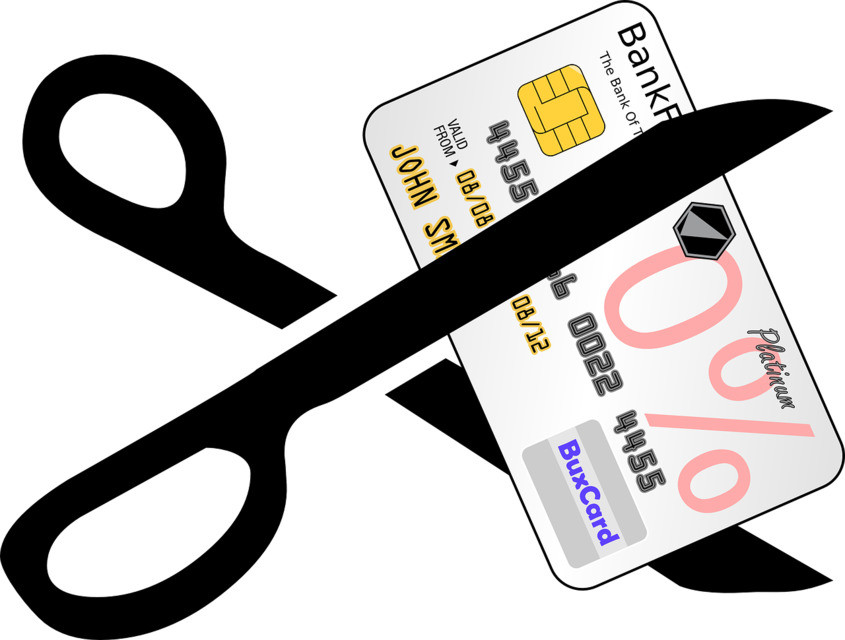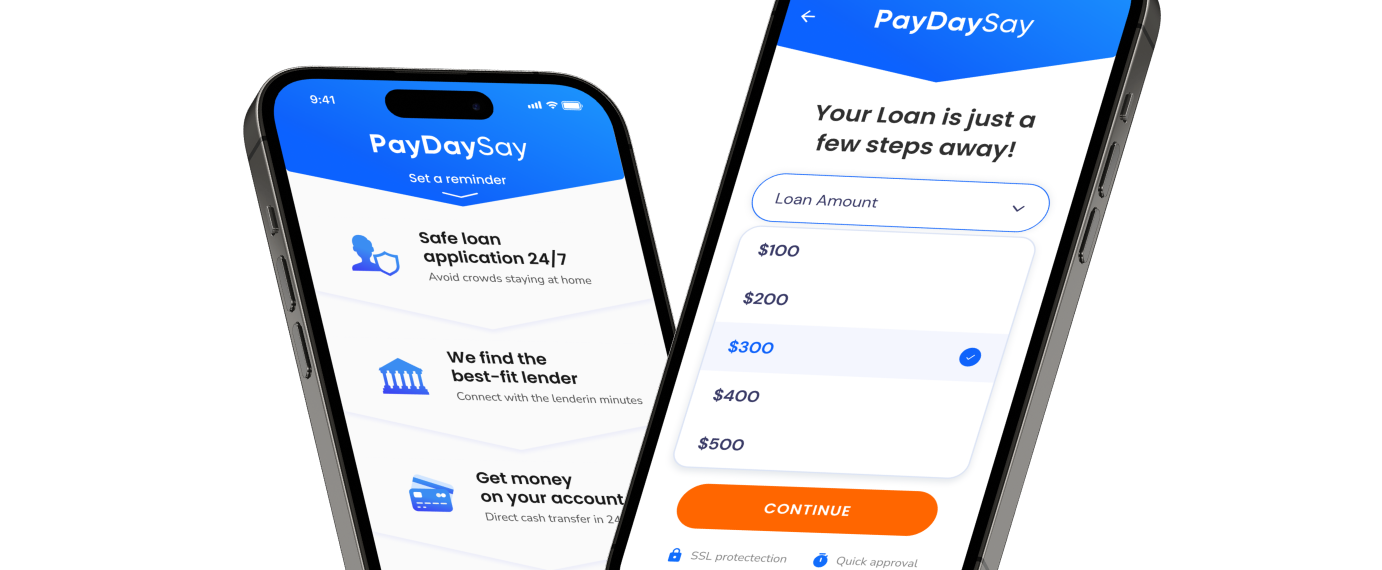Credit cards can serve as lifeboats in emergencies but even the best credit cards may come at a cost only some are willing to pay especially people with bad credit. So, getting an alternative might be the way to go, whether to save cost, gain convenience, ease accessibility, or improve your overall financial situation.
Whichever goal you wish to achieve, this article will help you make an informed decision with useful credit card alternatives you can opt for this year.
Denied a Credit Card? Is an Alternative Credit Card Right for You?
Arriving at an answer should be pretty straightforward since most people who opt for alternatives have one issue or the other with credit card application loans. It might be a good option for you if you don’t have a reputable credit history or your credit score is not enough to get you approved.
However, before deciding, you should try to exhaust all options. For example, some lenders accept low credit scores if low figures are your major challenge (Visa® cards are popular and thus peculiar on credit checks, so can try to avoid those popular options). Some card issuer’s approval processes don’t even bother with checks altogether, making your quest for approval much easier and rendering credit card alternatives useless.
In this guide, you’ll find some of the most convenient alternatives, each offering different challenges and opportunities. Try to check your credit status, limit and history before applying though, to know which one is ideal for you. So try to sift through all the options we’ve detailed below and compare the greens and reds before taking the big leap.
Prepaid Debit Cards: A Convenient Option
According to section 75 of the Consumer Credit Act, credit cards can help you access cash on various types of credit; debit cards do the opposite. Hence, rather than access more than what’s in your account, you’ll only be able to spend as much as you have in your bank account via your debit card. All expenditures are debited from your account, and you can only access as much money as you deposit, nothing more.
This option has an edge over a credit card because it is linked to your bank account and doesn’t need a good credit score for approval. So, it allows you to keep track of your spending and easily control it if needed. Debit card allows you to cut back on your expenditure and keep your finances under control, though it also comes with its unique challenges.
There are several methods for funding your prepaid account, they include direct deposit from paychecks, transferring funds from a bank account, using cash at retail locations, or mobile check deposits. Simply choose the method that suits you best and follow the card issuer’s instructions to load money.
One major dent to its glory is the need for a proper rewards system and little chance to rebuild your credit. Debit cards offer little to no reward for spending, unlike their counterparts, where you get rewarded for specific transactions you perform. However, considering that you won’t be paying off interest or high maintenance fees, they aren’t bad options either.
Mobile Payment Apps: The Digital Wallets
As the world went mobile, the financial realm was also included. As more and more people adopt technology, traditional banks have made way for digital wallets. The emergence of smartphones has also made it quite easy to set up an account right from the comfort of your home and perform multiple transactions while seeing a movie at the cinema. But do digital wallets count as a reliable alternative?
Although the answer is subjective and depends entirely on your situation or preference, digital wallets might be a lifesaver. With the convenience they offer and the low maintenance fees charged, you might save a lot of money banking on these virtual accounts. Some of them also offer overdraft or loan services at little cost or even help you build credit by reporting. These platforms boast robust security features, such as the latest encryption technology and SSL protection on sites.
But while it might sound juicy and attractive, there are limitations to this mode of financial platform, too. You won’t need to use credit card but is only sometimes widely accepted across all platforms, which might put you in a tight spot or disadvantage when you need to make important transactions. Below are some of the good and bad aspects of this platform for your perusal.
Pros
Cons
Prepaid Secured Cards: Control Your Spending
This is another item on our list that aims to control your expenditures. Prepaid secured cards are a convenient way to provide users access to stored or virtual money they’ve purchased earlier. They are similar to debit cards but allow you to spend your stored money without linking with your bank account.
So, you get to spend as much money as you invest in the card to make purchases. This is a smart way to keep your spending minimal while ensuring your days of living in credits are over.
With a steady plan, they make good alternative credit card issuers by allowing you to purchase or load the cards with certain amounts at intervals. Think of it as a credit card; but rather than allowing the lender to provide you extra funds, load the card with some extra funds. And every time you need to complete a transaction, you can always use it, but this time, you won’t have to return your spending with interest or incur additional fees.
One major setback with this option is its similarity to credit cards often regarding fees. You might need to pay high maintenance fees to keep the card running. Some prepaid card companies charge you reloading fees, activation fees, monthly fees, transaction fees, ATM withdrawal fees, or inactivity fees. They also pose scams or security threats because they aren’t tied to specific identities.
Cryptocurrencies: The Future of Transactions?
Applying for a credit card that can help you build fair credit may sound great, but crypto could also be a smart alternative. Below are general features you should know about this method:
- Cryptocurrencies have emerged as a compelling alternative to traditional payment methods, promising a decentralized future of transactions. Blockchain technology is at the heart of this financial revolution, which eliminates the need for intermediaries like banks, offering increased transparency and security.
- Decentralization, the cornerstone of cryptocurrencies, means that transactions occur directly between users, with no centralized authority overseeing the process. This has the potential to disrupt traditional financial systems and empower individuals by giving them greater control over their money.
- The acceptance of cryptocurrencies by businesses and governments needs to be more consistent. While some companies and countries embrace digital currencies, others remain skeptical, leading to regulatory challenges and concerns about legal status.
- Despite these hurdles, cryptocurrencies continue to evolve and provide a better financial solution to credit cards, with ongoing efforts to address volatility and improve scalability.
Personal Loans: Borrowing on Your Terms
Personal loans are one of the most popular loan financing options after subprime credit cards. It is an unsecured financial product that allows individuals to borrow a fixed sum, typically for various personal expenses (usually large), and repay it over time with fixed interest. They offer similar features as the latter but are available as lump sums rather than intermittent funds. This characteristic makes them more equipped for emergencies requiring huge amounts at once.
They also offer a much better repayment structure, allowing you to pay a fixed monthly amount. One red flag it waves is the trade-off between the rates. Depending on your credit history and loan amount, you might have to pay high interest rates when you opt for personal loans.
Since borrowers tend to provide other means of security, personal loans only sometimes involve credit checks (they may be interested in other data like your income amount, employment status, banking data, and rental history to determine your eligibility to borrow) from credit reporting agencies. This means you can skip the whole step of building your credit score or keeping a healthy financial history to get approved.
Store Credit Accounts: Limited Usefulness
They are often tagged as good alternatives to a credit card and have a unique place in consumer finance. These accounts are provided by specific retailers and are intended to facilitate shopping within their stores. They offer benefits, such as financing options for significant expenses, but come with limitations that may not make them the ideal choice for everyone.
One of the primary advantages of store credit accounts is their potential to help customers manage substantial purchases. Retailers often entice customers with attractive financing deals, such as zero per cent interest for a specified period, making it easier to afford big-ticket items like appliances or electronics. This can be especially appealing for those looking to spread out payments over time.
However, some store credit accounts can carry higher interest rates than how subprime cards works once their promotional period ends. Moreover, their usefulness is restricted to the specific retailer, limiting your purchasing power outside that store. This can be a significant drawback if you seek a versatile financial tool.
Peer-to-Peer (P2P) Payment Platforms: Direct Transfers
If you belong to something other than a P2P lending platform, now might be the time to get on board this obvious alternative! These platforms provide their eligible members with access to timely financial assistance and extra cash and do not hurt your credit.
The system peers you with a willing lending partner, likely someone with the highest compatibility on their database. The opportunity here is that you can negotiate with the lending partner and get the best deal possible. The downside, however, is that there is often a need for more lenders on these platforms, which might force you to opt for deals that don’t favor you.
They also offer you the opportunity to create a dynamic source of funds. You can easily split your bills into multiple sections, allowing you to get timely funds during emergencies and easing the repayment plan.
Note: These platforms are often filled with scams, so be careful of scammers. Try to verify your lenders’ and offers’ identity and authenticity before striking a deal on P2P lending platforms.
Traveler’s Checks: Old but Reliable
Traveler checks have long been considered a dependable choice for international travel, offering a secure means of carrying money abroad. These checks, often issued by banks and financial institutions, gained popularity for their safety features, including signature verification and the ability to replace lost or stolen checks.
In the past, traveler’s checks were a much-preferred option, especially for travelers concerned about theft or loss of cash. They provided peace of mind, knowing that if the checks were lost or stolen, they could be easily replaced, safeguarding one’s travel funds.
However, in recent years, traveler’s checks have declined in popularity. This decline can be attributed to the emergence of more convenient alternatives such as prepaid travel cards and digital payment methods.
Barter and Trade Systems: A Unique Approach
If you can’t get a credit card company to approve your line of credit, you can resort to this old-fashioned alternative option. As it implies, you can trade goods using the trade-by-barter system. When faced with heavy purchases or bills, you can find a seller or service provider willing to provide the product or service to you at the cost of a product or service you provide.
This way, you pay off your expenditure in full and incur no additional fees or expenses. You won’t need to deal with currency, which means the product price would be subjective to the buyer-seller relationship.
The implications that could arise from this method include scams, misquoting values, subpar product exchanges, etc. But they could be avoided by carefully evaluating the offers and propositions before striking the deal.
Budgeting Apps: A Holistic Financial Solution
Budgeting apps have become indispensable tools in consumer credit finance, offering a simple approach to managing your finances. These apps, easily accessible on smartphones and other devices, are designed to empower individuals with the tools they need to take control of their finances effectively.
They excel in tracking spending, giving users a real-time view of their financial transactions, categorizing expenses, and revealing spending patterns. This feature alone can be a game-changer in creating awareness about where one’s money is going.
They go beyond simple tracking; they enable users to set financial goals. Whether saving up for paying off debt, going on a vacation, or creating an emergency reserve, these apps help individuals establish clear objectives and provide insights on achieving them. They offer budgeting templates and savings plans tailored to individual goals.
Gold and Precious Metals: A Store of Value
Gold and precious metals have long been revered as investment options and stores of value. These tangible assets transcend time, offering a hedge against economic uncertainty and a safeguard against the erosive effects of inflation. Investing in gold and precious metals is a strategy that has stood the test of centuries.
One of the primary roles of these metals is to provide stability in times of economic turbulence. When traditional markets falter, investors often turn to gold and precious metals as a haven.
Their intrinsic value and limited supply make them a reliable refuge during financial crises, currency devaluation, or geopolitical issues. Their assets also serve as a hedge against inflation. As the value of paper currencies fluctuates, gold and precious metals tend to retain their worth.
Payday Loans: Proceed with Caution
Often advertised as a quick fix for immediate financial needs, payday loans come with a stark warning: Proceed with extreme caution. These short-term, small-dollar loans are designed to provide rapid access to cash, but their convenience hides a multitude of financial risks that can trap borrowers in cycles of debt.
The appeal of the money loan app lies in its accessibility. They require minimal documentation and often provide same-day funding, making them attractive to individuals facing urgent expenses. However, their convenience is overshadowed by exorbitant interest rates.
The annual percentage rates (APRs) for payday loans can reach astronomical levels, sometimes exceeding 400%.
Another concerning aspect is the short repayment terms. Borrowers are typically required to repay the loan, along with high fees, on their next payday. For many, this can create a dangerous cycle of borrowing to cover the previous loan, leading to a never-ending debt trap.
Alternative To Credit Cards If You Have Poor Credit Score
A secured card can be one of the coolest alternative financial solution when a low credit limits your access to traditional credit cards. These cards are designed specifically for individuals with limited credit histories (usually no credit check when you apply), offering a pathway to rebuild credit while enjoying some of the benefits of a credit card.
A secured credit card requires a security deposit, which typically determines the result when you receive a credit limit. This deposit is a form of collateral and mitigates the level of risk involved for the issuer, making it easier for those with low credit scores to qualify. Using the card responsibly by making on-time payments and managing your balance can gradually improve your score or have impact on your credit card issuer reports.
They function like regular cards, allowing you to make purchases and build a positive payment history. This can open doors to better financial opportunities in the future, including eligibility for unsecured credit cards with more favorable terms. If you’re considering a secured credit card, checking your available credit report with the three major credit bureaus first is crucial. Obtaining an excellent credit analysis from the three credit bureaus helps identify the factors contributing to a low score and ensures the accuracy of the information in your credit file.
Conclusion
There are many replacements if you don’t want to apply for credit cards or are new to credit cards offers, but it depends on your preference or financial goals. Other financing options might be the right choice after you’ve been denied a credit card with bad credit.
Meanwhile, you might want to consider other sophisticated options like trade by barter or borrowing from colleagues and family if you don’t fancy the idea of accumulating debts and fees on your card. Regardless of your choice, though, always try to weigh the pros and cons before deciding, and be careful not to fall into the financial scam in your quest for a reliable lending alternative.













 on your homescreen
on your homescreen